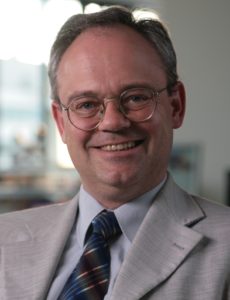In June 2019, I was flown to Phnom Penh to give a Royal Package to a Cambodian business man who later on became a repeat client. While I was there, I met a chiropractor and we talked a lot about how we used our skills in helping people with sexual problems. For him, there is always an explanation somewhere in a person’s body that prevents them from enjoying sex like a normal person. For me, it’s all about awaking a body’s senses and transcending them. We have different approaches but we are all for our clients’ pleasure and comfort. He also told me about one of his friends, a German sexologist living and working in Saigon and that my work would interest this professor. I completely forgot about our encounter until Feb this year when the professor reached out to me. We arranged to meet and I managed to conduct an in-depth interview with him regarding sexology to give my readers a general picture of this field. Since the contents are quite comprehensive, I decided to divide our interview into three parts: general information about sexology and related conferences, breakthroughs in sexology and sex therapists. Below is our first part of the interview.
PART 1: SEXOLOGY- GENERAL INFORMATION
- Can you tell us a little bit about yourself?
My name is Jakob Pastoetter. I have a PhD in Education at the Humboldt University, Berlin, and I am a Professor at the American Academy of Clinical Sexology. Since 2006, I have been President of the German Society for Social Scientific Sexuality Research and also Director of its Sex Counselling Institute.

- Why are you in Vietnam?
I wrote an article on Vietnam when I was an Associate Editor of “The International Encyclopedia of Sexuality” at the Kinsey Institute. 15 years later a Vietnamese scholar invited me to visit him and do sociological sexuality and marriage research here. I decided to stay and became affiliated with the Faculty of Sociology at the Ho Chi Minh University of Social Sciences and Humanities.
- How long have you been here?
I first visited Vietnam in January 2018 and decided that the best way to study sexuality and marriage here, was to live here. I returned in March 2018, taking on a job as teacher of German at the University of Culture.
- What are you doing for your university here?
The plan was to teach courses in Sociology of Sexuality. This idea hasn’t panned out so far because of administrative problems but I got assigned two doctoral students who write their PhD thesis on sexuality related topics.
- Why are you having problems with your research on Vietnamese marriage and sexuality?
The biggest problem is to get in touch with Vietnamese men and women who agree to talk with a foreigner about their sex and marriage life. These are very sensitive topics and it seems that many people lack a vocabulary to talk about sexuality and intimacy.
- What does sexology involve? What are branches of sexology?
Sexology as a field of research is a very young discipline. It was founded at the turn of the last century by German MDs who saw the need for scientific reliable information about sexuality in an age of soaring STDs and out of wedlock births due to the social changes caused by the industrialisation. From the beginning also homosexuality and transsexuality were big topics.
From the beginning sexology was an interdisciplinary field of research: Medical research, sociology, psychology, cultural anthropology participated to further our knowledge of sexuality. Two other branches are political sexology which was crucial in changing attitudes to and legislation of women’s rights, availability of birth control and abortion, as well as homosexual rights, and our views of what’s sexually normal, and sex therapy which aims at helping people to accept their individual sexuality and to develop their sexual potential.
- Is sexology dying out?
Although sexology is always under moral pressure it doesn’t look like that. Although it’s a niche discipline it’s still well alive and kicking.
Besides the academic field which is mostly held up by sociologists and psychologists who get public funding there is the vast field of clinical sexology.
There are also dozens of academic journals where sexological research is published.
- Why isn’t sexology a popular subject in university if any?
There are four reasons:
1.Sexuality has still this stigma; it can harm your academic reputation. People at universities are not necessarily more enlightened than common people. My colleagues and I hear often sentiments such as “Somebody who wants to get a tenured position at a university shouldn’t do this kind of research.” The university administrations are also afraid that it’s bad for their reputation which results in political and financial pressure.
2.A well-kept secret is: Many professors love to fuck their students. They are not interested in an academic field that might provide students with sound information about sexuality. It’s much easier to seduce students who don’t know anything about sexuality.
3.Sexology is still a very young discipline AND it’s an interdisciplinary field of research. Since there’s always a struggle for money involved at universities, nobody wants to fund a “new” discipline. Almost all attempts did sooner or later run into a dead end.
4.Today’s political climate at many Western universities is very “liberal”. However, that leads to even more problems for sexology as an academic field because new, more “politically correct” fields have become popular: feminist studies, gender studies, and queer studies. Those are rooted in the belief that all sciences are “patriarchal” and instead of doing scientific sexuality research one should just promote a specific idea of sexuality conform with the underlying ideology of those “liberal” studies. In the last decades, many research sexologists became expelled from their universities because their research and/or teaching didn’t support the ideas of those “liberal” fields. Academic culture has become heavily politicised
- Are there any conferences on sexology?
More than you can attend every single year! In 2020 alone you will have to choose among dozens of international sexological conferences. Most of them are held in Singapore and the USA; a couple of others are held across Europe and surprisingly in Middle East.
- How often are these?
Usually at least every two years like the conferences of the German Society for Social Scientific Sexuality Research and the conferences of the World Association for Sexual Health. The latter is an umbrella organisation. Five prominent Regional Continental Federations are members of the WAS: The Asia and Oceania Federation of Sexology (AOFS), the European Federation of Sexology (EFS), the Latin American Federation of Sexology and Sexual Education (FLASSES), the North American Federation of Sexuality Organisations (NAFSO), and the African Federation for Sexual Health and Rights (AFSHR).
WAS members also include more than 100 national and international sexological organisations, institutes and foundations.
- What are the usual agendas of these?
Everything that has in any way to do with sexuality, ranging from sexual medicine to gender and queer studies. Some are very large with thousands of participants.
- How can one attend such conferences?
Just submit a paper. If it’s accepted, you can present it there. Those conferences are often very inclusive, so you don’t always have to be an academic to present your own research in, let’s say, sexual massage techniques or the suppression of homosexuality in a specific country. It clearly shows that sexuality is interwoven with many aspects of our lives.
